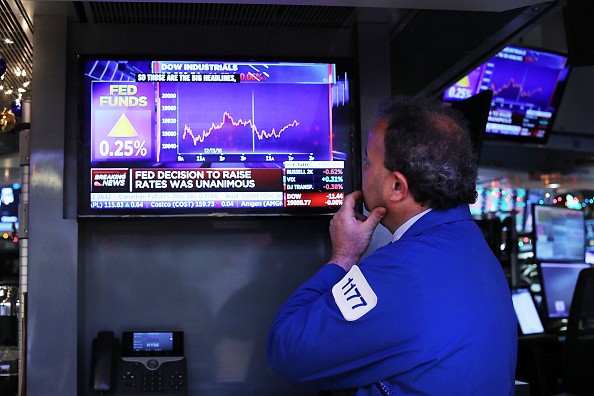Financial experts see the rising interest rates in the United States to have a drastic effect on China's economy, especially in managing its debt problem, increasingly relying on borrowing to maintain growth while trying to prevent capital from leaving the country, according to CNBC.
"If the Federal Reserve [keeps increasing] interest rates in the United States, the single biggest casualty of that this time is going to be China, because there's so much money just waiting to leave the country," Ruchir Sharma, head of emerging markets and chief global strategist at Morgan Stanley Investment Management, said on Tuesday, Dec. 13, at the Asia Society in New York.
Sharma pointed out that it was not a sustainable way for China to grow by moving from one bubble to another, particularly in stocks, commodities and now, real estate, since its "debt increase over the last five years has been 60 percentage points as a share of its economy."
"They're playing whack-a-mole constantly. They try to bring down one bubble, and something pops up somewhere else. They do that, and something comes up somewhere else," Sharma noted.
On Wednesday, Dec. 14, U.S. Federal Reserve officials approved the first interest rate increase this year, with a 0.25 percent increase, as more increases are planned in the next three years.
The increase in interest rates in the U.S. would strengthen the U.S. dollar and generate better yield for the U.S. Treasury.
Experts further said this move could result in further devaluation of the yuan against the dollar while more investment options are attracting money out of China.
However, other optimistic observers do not share Sharma's observation. They pointed out that China's debt problem is basically different from debt in other places as the Chinese government has control over the economy as well in many markets and businesses in the country. It can also manage its bubbles.
Sharma, however, countered that China's ability to manage its debt problem has been impaired and it would need more money to maintain its 6-percent GDP growth.
"Today in China, it's taking $4 in debt to create a dollar of GDP growth," according to Sharma, who is also the author of "The Rise and Fall of Nations: Forces of Change in a Post-Crisis World."
Other economists and market watchers also expressed concern at the China.
Peter Boockvar, chief market analyst at economic advisory firm The Lindsey Group, also noted that China "is headed to debt outstanding as a percent of GDP to north of 250 percent against 163 percent in 2008," as he mentioned the rise in consumer and banking debt in the country.
Last month, the Chinese government issued 794.6 billion yuan ($115.1 billion) in new loans last month, higher than the 651 billion yuan ($94.28 billion) released in October.


